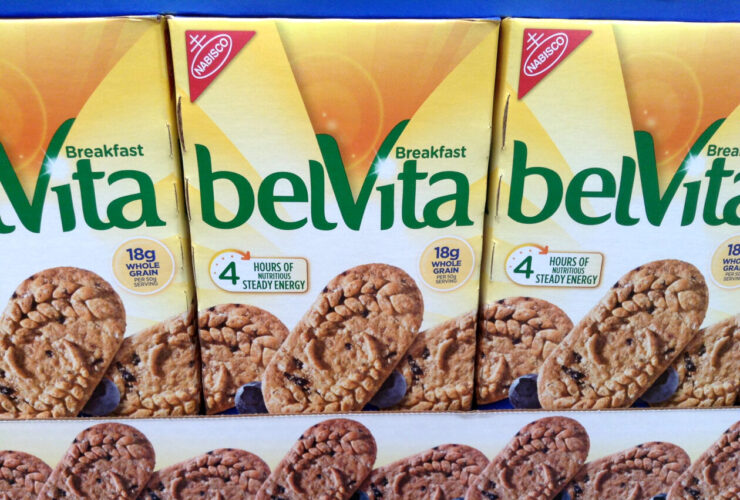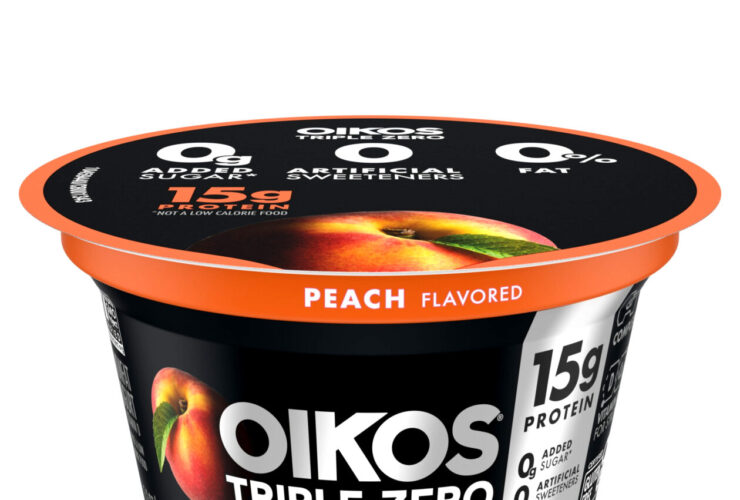Introduction
The controversy surrounding the Keto diet vs. intermittent Fasting has generated a lot of attention and conversation in the continuous search for successful weight management techniques. Both strategies offer unique methods for reducing body weight and enhancing general health, but choosing the best one necessitates carefully weighing a person’s preferences, lifestyle choices, and dietary requirements. It’s critical to comprehend the distinctions between intermittent Fasting and Keto as more individuals seek long-term solutions to control their weight and improve their health.
It is impossible to overestimate the importance of selecting the appropriate strategy because every weight reduction program’s effectiveness depends on how well it fits the goals and lifestyle of the person using it. The simplicity and flexibility of intermittent fasting appeal to some people more than the rigorous dietary limitations of the Keto diet, which may not suit everyone. People can make judgments that align with their particular preferences and circumstances by carefully considering the subtleties of each strategy and weighing their possible advantages and disadvantages.
In this talk, we will explore the nuances of the Keto diet and intermittent Fasting, looking at its underlying theories, physiological impacts, and real-world applications for managing weight and improving general health. We aim to give readers the knowledge and insights to confidently start their weight loss journey by illuminating these two well-liked approaches.
Understanding Keto and Intermittent Fasting

The Keto diet, or the ketogenic diet, is a high-fat, low-carbohydrate diet intended to cause a metabolic state known as ketosis. When the body burns fat for fuel rather than carbs, a more effective method of burning fat is achieved, known as ketosis. The main idea behind the Keto diet is to consume much fewer carbohydrates, more healthy fats, and moderate amounts of protein instead of carbohydrates. Restricting carbohydrates causes the body to burn fat instead of glycogen, which improves metabolic health and causes weight loss.
Conversely, intermittent Fasting is an eating habit that varies between eating and fasting times rather than a particular diet. In contrast to conventional diets that limit calories, intermittent Fasting emphasizes when you eat and what you eat. The 16/8 technique calls for 16 hours of Fasting followed by an 8-hour window for eating, and the 5:2 approach, which calls for five days of regular eating followed by two days of calorie restriction, are two popular versions. By utilizing the body’s innate capacity to go into a fasting state, intermittent Fasting promotes several health advantages, including higher fat burning, greater cellular repair, and improved insulin sensitivity.
While the Keto diet and intermittent Fasting are viable strategies for improving metabolic health and losing weight, their working theories and real-world implementations differ. While intermittent fasting centers on timing eating habits to improve metabolic processes, the keto diet manipulates macronutrient ratios to produce ketosis. Every strategy has advantages and disadvantages, and the best option relies on personal preferences, lifestyle choices, and health objectives. Before starting any diet, you must speak with a medical expert or certified dietitian to ensure your needs and current health are met.
In conclusion, it’s critical to comprehend the fundamentals and subtle differences between the Keto diet and intermittent Fasting to make an informed choice about which strategy could be more appropriate for your preferences and goals. By examining the nuances of different dietary approaches and their possible effects on weight reduction and general well-being, people may make sense of the abundance of information and confidently start their path to a healthier way of living.
Comparing Weight Loss Mechanisms
It’s critical to comprehend the metabolic mechanics underpinning intermittent Fasting and ketogenic diets to compare how they each reduce weight. The foundation of the ketogenic diet is creating a state called ketosis, in which the body starts using fat for energy instead of carbs. This metabolic shift happens when the amount of carbohydrates consumed is drastically decreased, which causes the liver to produce ketone bodies. Ketones are produced when lipids break down and are a substitute energy source, especially for the brain. To lose weight, those following the Keto diet strive to maintain ketosis and encourage fat-burning by adhering to a low-carb, high-fat diet.
On the other hand, intermittent Fasting aims to modify eating habits to promote weight loss and fat metabolism. Intermittent Fasting modifies insulin levels and encourages the release of fat reserves for energy through eating and fasting. Insulin levels drop during Fasting, enabling the body to use fat reserves as fuel. This procedure can result in a decrease in body fat percentage and total weight loss. It is called fasting-induced fat burning. Further supporting its efficacy for managing weight, intermittent Fasting has also been demonstrated to optimize energy metabolism, increase insulin sensitivity, and improve metabolic flexibility.
Though both effective weight loss plans, Keto and Intermittent Fasting, have different metabolic impacts and real-world uses, Keto modifies food to enter and stay in ketosis. In contrast, intermittent Fasting uses fasting intervals to enhance fat metabolism and metabolic health. The best option between the two methods relies on a person’s lifestyle, metabolic profile, and personal preferences. People can choose the intermittent Fasting and ketogenic diet plan that best suits their preferences and goals for long-term weight loss and general health by knowing each approach’s physiological effects and underlying mechanics.
Health Benefits and Risks

It’s important to examine the advantages and disadvantages of intermittent Fasting and the ketogenic diet in terms of their overall health effects rather than just how they affect weight loss. Beyond just helping people lose weight, both strategies have drawn interest for their possible health benefits. For example, Keto has been linked to decreased inflammation, better blood sugar regulation, and improved cognitive performance. The Keto diet has the potential to benefit people with type 2 diabetes, neurological illnesses, and inflammatory ailments by limiting their consumption of carbohydrates and increasing their metabolism of fat.
Comparably, studies have connected intermittent Fasting to several health advantages, such as increased longevity, cellular repair, and insulin sensitivity. Periods of Fasting increase autophagy, a cellular cleansing mechanism that eliminates damaged cells and encourages cellular renewal, which may lower the risk of age-related illnesses.
Recognizing the possible hazards and disadvantages associated with both Keto and intermittent Fasting is imperative. The possibility of nutritional shortages, especially in important vitamins and minerals in foods high in carbohydrates, is one of the main issues with the Keto diet. People on the Keto diet may become deficient in fiber, B vitamins, and electrolytes if they don’t plan and take their supplements carefully. This could hurt their general health and wellness.
Furthermore, some people can find it difficult to stick to the rigorous dietary guidelines of Keto over the long run, which could result in rebound weight gain or other negative health impacts. In a similar vein, some people may be in danger from intermittent Fasting, including those with a history of eating disorders, hormone imbalances, or underlying medical issues. Prolonged Fasting or severe calorie restriction durations may impair energy levels, cause metabolic disruption, and encourage binge-eating tendencies in vulnerable people.
Emphasizing the value of customized strategies and well-informed decision-making is essential for dispelling widespread myths and worries about Keto and intermittent Fasting. Although some people may benefit from these dietary approaches, not everyone should use them, and medical history, preferences, and personal health goals should all be considered. Speaking with a medical professional or registered dietitian can help people navigate the possible advantages and disadvantages of intermittent Fasting and the ketogenic diet, empowering them to make decisions that will ultimately improve their general health and wellness.
Practical Considerations
Starting a new diet frequently requires thorough preparation and thought of the practical side. People considering the Keto diet should be ready to handle its particular dietary restrictions and meal planning needs. Keto emphasizes foods high in fat, moderate in protein, and low in carbohydrates, which can be a big change from regular diets. To guarantee sufficient consumption of vital nutrients while reducing the intake of carbohydrates, meal planning becomes crucial. Furthermore, following a Keto diet may entail cutting back on or eliminating specific food groups, such as fruits, grains, and starchy vegetables, making it difficult to maintain a varied and enjoyable diet.
On the other hand, Intermittent Fasting presents an alternative strategy for managing one’s diet by emphasizing when and what to eat. People who want to include intermittent Fasting into their everyday routines must set meal windows and fasting periods that fit their preferences and lifestyles. While skipping meals or prolonging fasts may come naturally to some, others may struggle to control their appetite, desires, and energy levels. Managing social events and meal timings can also require careful planning and flexibility to accommodate fasting patterns properly.
It’s crucial for newcomers considering starting an intermittent fasting or ketogenic diet to approach the shift with reasonable expectations and make small alterations. Initiating minor and feasible adjustments at the outset can facilitate the shift and enhance the probability of sustained achievement. You can learn much about personal tastes and tolerance levels by experimenting with various meal plans, recipes, and fasting patterns. Throughout the process, seeking assistance from online groups, dietitians, or medical professionals can provide direction, accountability, and encouragement. Ultimately, success with any strategy depends on striking the correct balance between sustainability and practicality, ensuring that dietary modifications are successful but also pleasurable and long-term sustainable.
Personalization and Individual Factors
Understanding that there is no one-size-fits-all approach to Keto versus intermittent Fasting is essential when weighing both benefits. Weight loss strategies that are tailored to each individual take into consideration their preferences, lifestyle choices, and metabolic variations. Although many have found success with Keto and Intermittent Fasting, something other than what works best for one person may work for another. As such, it’s critical to customize dietary plans to meet the demands and objectives of each individual.
The acceptability and effectiveness of Keto and Intermittent Fasting are significantly influenced by age, gender, activity level, and underlying medical issues. For instance, compared to younger people, elderly adults may have differing nutritional needs and metabolic reactions. Similarly, the hormonal differences between men and women can influence how the body reacts to food modifications and fasting regimens. In addition, to guarantee safety and efficacy, people with specific medical conditions like diabetes or metabolic syndrome might need to adjust their Keto or intermittent fasting regimens.
Knowing each of these specific elements can assist people in selecting the diet plan that best fits their requirements. Seeking advice from a medical professional or qualified dietitian can offer tailored direction and assistance, accounting for individual health objectives, preferences, and any underlying medical conditions. People can increase their chances of success and obtain long-lasting weight loss results by customizing their diet plans to their unique needs and circumstances.
Long-term Sustainability and Adherence
One important factor to compare when comparing Keto and intermittent Fasting as weight loss regimens is how sustainable each is over the long run. While both strategies might provide noteworthy outcomes quickly, sticking with them over a longer time brings particular difficulties. The ketogenic diet’s concentration on high-fat, low-carbohydrate foods may necessitate considerable lifestyle changes for certain people. Conversely, Intermittent Fasting entails intervals of Fasting, which could be difficult for people with demanding schedules or certain dietary requirements to maintain.
Long-term commitment to Keto or intermittent Fasting requires investigating solutions that suit personal preferences and lifestyles. Meal preparation and planning can be quite important for Keto to guarantee a range of nutrient-dense foods that follow the diet’s guidelines. Flexible fasting plans that meet social commitments and everyday schedules while still allowing for times of fasting for metabolic advantages may be advantageous for Intermittent Fasting.
Maintaining long-term weight loss with either strategy frequently demands more than dietary adjustments. Achieving long-term success requires making significant behavioral and mental changes. A healthy connection with food, realistic goal-setting, and the development of good habits are all crucial components of long-term weight control. People can improve their chances of sticking to Keto or intermittent Fasting for the long run and seeing results by taking care of these issues and making dietary changes.
Combining Keto and Intermittent Fasting
Combining Keto with intermittent Fasting is a strong choice when considering the best method for losing weight and improving general health. People can take advantage of the synergistic effects of combining the concepts of these two dietary methods, which can improve fat reduction and promote metabolic flexibility.
Combining Keto with intermittent Fasting makes use of the distinct metabolic pathways that are triggered by each approach. While intermittent Fasting causes changes in metabolism brought on by Fasting, Keto causes ketosis by limiting carbohydrate intake and emphasizing fat ingestion. People can increase fat-burning processes and improve metabolic adaptability by cycling between Fasting and ketosis.
It takes great thought and preparation to incorporate intermittent Fasting and ketogenic diets into a person’s lifestyle. Adhering to keto-friendly food selections during eating times and creating a regular meal schedule that coincides with intermittent fasting windows are examples of useful advice. Monitoring nutrient intake and hydration levels is essential to guarantee proper nutrition and hydration during the fasting and feeding phases. People can maximize their weight reduction journey and advance general well-being by combining Keto and intermittent Fasting sustainably and sustainably.
Conclusion
The contrast between Keto and Intermittent Fasting highlights two unique yet successful dietary strategies for reducing body weight and enhancing general health. Before choosing which route to take, people should assess their personal preferences, lifestyle, and health goals, as each method has unique benefits and considerations.
Both intermittent Fasting and ketogenic diets have demonstrated encouraging outcomes in boosting metabolic health, encouraging weight loss, and improving several health indicators. There is only one answer that works for everyone. What works best for one individual could have a different impact on another. , Therefore, people must try both approaches and decide which best suits their tastes and way of life.
It’s crucial to put safety first and get advice from medical specialists before starting a Keto or intermittent fasting program, especially for people with underlying medical issues or special dietary requirements. Speaking with a qualified dietitian or other healthcare professional can offer tailored advice and guarantee that dietary modifications are carried out securely and efficiently.
A person’s decision between Keto and intermittent Fasting ultimately comes down to personal tastes, health, and lifestyle concerns. People can support their journey towards improved health and well-being by making educated judgments, investigating strategies, and consulting experts.
References
(1) The Potential Health Benefits of the Ketogenic Diet – NCBI
https://www.ncbi.nlm.nih.gov/pmc/articles/PMC8153354/
(2) Intermittent Fasting: What are the benefits? – Mayo Clinic
https://www.mayoclinic.org/healthy-lifestyle/nutrition-and-healthy-eating/expert-answers/intermittent-fasting/faq-20441303
Was this helpful?

Joseph Emb, RDN
Founder of StyleVitally.com | Registered Dietitian & Wellness Advocate
What I Cover:
I’m passionate about connecting nutrition science and everyday wellness to help people live healthier, more vibrant lives. I write about evidence-based nutrition, mindful eating, sustainable lifestyles, and holistic well-being at StyleVitally.com.
My Background:
The University of Texas in Austin, where I earned my Dietetics diploma, laid the groundwork for my nutrition and health career. My training and hands-on experience taught me the science and art of using nutrition to enhance health and well-being.
Professional Journey:
I’m an RDN with lots of experience. I’ve helped people seeking tailored nutritional recommendations in clinical settings and community outreach programs. My constant learning and professional development ensure that my recommendations are always based on the latest evidence.
Ethical Commitment:
My practice prioritizes integrity. My content is transparent and objective, following the most significant ethical standards. I can give my audience unbiased advice because I’m not affiliated with food businesses or industry associations. I want to help people make informed health decisions that match their values and ambitions.
Join Me on the Wellness Journey:
Join me on the path to vitality and well-being, whether facing nutritional issues, seeking sustainable lifestyle changes, or simply wanting a better, happier you. We’ll discover how diet, mindfulness, and holistic well-being can maximize your potential.









